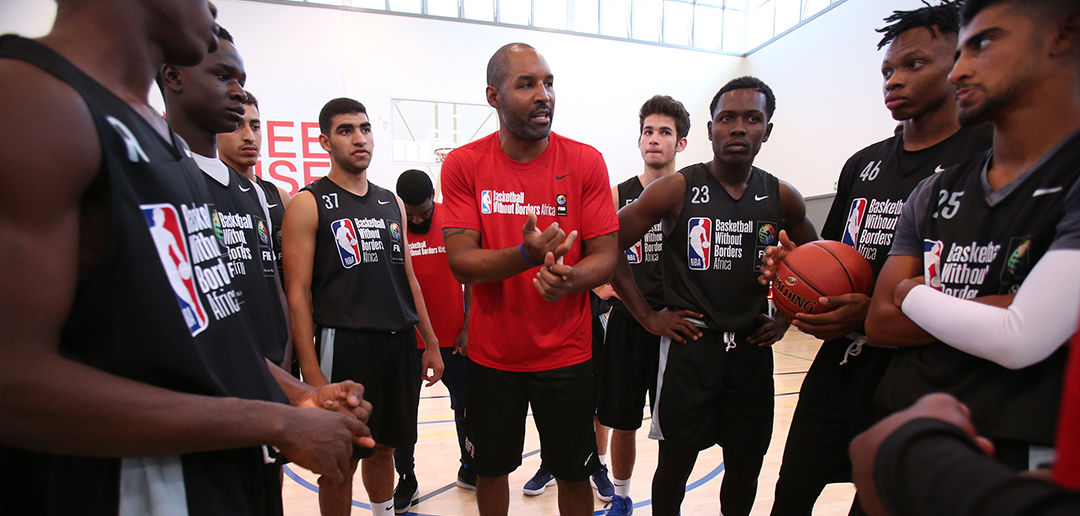The idea of toughness is often lauded as a key ingredient of winning teams. And although the concept of toughness has gained popularity in recent years, the understanding of true toughness still remains hazy. A useful definition of toughness is: the ability to consistently do hard things that lead to desired outcomes, goals, and objectives. Commentator Jay Bilas once wrote, “Toughness is a skill, and it needs to be emphasized, prioritized and valued.”
Building winning teams is always a confluence of many different factors; however, the elixir of success is never complete without the presence of toughness. In particular, the mental side of toughness is often the deciding factor between winning and losing teams. If we believe that toughness is critical to success, then how can coaches and leaders help build tough-minded players and teams? How can we teach and inspire our teams to build a mindset of toughness that allows us to overcome the obstacles that stand in our way?
Toughness is a skill that must be taught, practiced, and emphasized. Here’s how to do it.
Toughness is the Ability to Prepare
Understanding that toughness is the ability to prepare dissipates the mystique surrounding a somewhat nebulous concept. In other words, equating preparation with toughness puts real flesh on the idea. When leaders associate toughness with preparation it removes the uncertainty about how tough teams (and individuals) must approach their work. Tough teams are prepared teams. The ability to prepare not only builds a mindset of toughness, but a foundation of confidence. Preparation begets confidence. As NBA great Steve Kerr once said, “The more work I put in, the more I prepared myself, the better foundation of belief I built.”
Coaches can help build mental toughness in their players by building a structured system of preparation. Toughness is formed in the hours and hours of preparation in the crucible of the planning for contingencies. In short, preparation provides a pathway to toughness. It is an investment in one’s future ability to deal with difficult things, and as those deposits of preparation are made, toughness grows.
Toughness is the Ability to Focus
Former UC Berkley Coach Jack Clark said, “Mental toughness is your ability to focus on the next most important thing.” Tough-minded people are able to blot out distractions and maintain focused discipline on the task at hand. Distraction is one of the greatest drains on performance because it impedes progress and sidetracks momentum. Mental toughness is the ability to bring one’s mind back to the present and focus on the next most important thing. A useful acronym for this concept is N.B.A. which stands for next best action. Celtics coach Brad Stevens said, "Toughness is being able to physically and emotionally perform your task through any condition." Physical distraction (like a nagging injury that distracts an athlete from playing well) or emotional distraction (like when a player fails to get a call from a referee and becomes emotionally upset to the point of ineffectiveness) can be huge impediments to high performance.
A coach’s job is to help bring players and teams back to the present moment. One of the most effective ways to do this is to create a language of belief that brings a team back to center. In other words, as author and coach James Kerr puts it, “Language becomes the oxygen that sustains belief. In this way, leaders rewrite the future.” Leaders should compile a system of “culture codes” — short phrases that emphasize an important principle or truth that can be used in times of emotional or physical distress. (If you want practical ideas about what those might look like, send me an email at quinn.mcdowell@aretehoops.com).
Toughness is the Ability to Respond (and not Rationalize!)
Duke University basketball coach Mike Krzyzewski said, “Toughness is the ability not to rationalize. Rationalization is making an excuse for not achieving more than you have to that point.”
The danger of rationalization is found in the failure to take responsibility. The world is given to those who have the courage to take responsibility and learn from their mistakes (and their successes, for that matter). Response is so critical because it reorients one’s path of development. Responding positively (i.e. learning from a situation and trying to improve from mistakes) moves a person towards his or her objectives, while responding poorly (i.e. blaming and rationalizing) stunts one’s growth. Toughness is about building the capacity to be able to bend or flex under pressure without breaking.
Coaches need to set a standard of excellence within their programs that will not accept rationalizing. Building a culture of ownership requires the toughness to respond with responsibility rather than rationalization.
The ability to meet the particular demands of a given situation (whatever, whenever, wherever that might be) is a true sign of toughness. Toughness is rising to the challenge regardless of the circumstance in a way that fulfills the obligations of the present moment while pushing oneself towards the desired objectives.
Coaches can help their athletes push past the fear, distraction, and rationalization by training and equipping their athletes to stand strong in moments of difficulty. Toughness is a skill that must be taught, practiced, and emphasized; it helps us address the inevitable challenges that will confront us on the field of competition and in life. As author David Brooks once wrote, “We are defined by what life asks of us.”
There is no greater test of character than having the toughness to respond to the difficult questions that life throws our way. This is the test we should all be preparing for.
Take one more step...
Develop athletes of winning character with this these three strategies.














